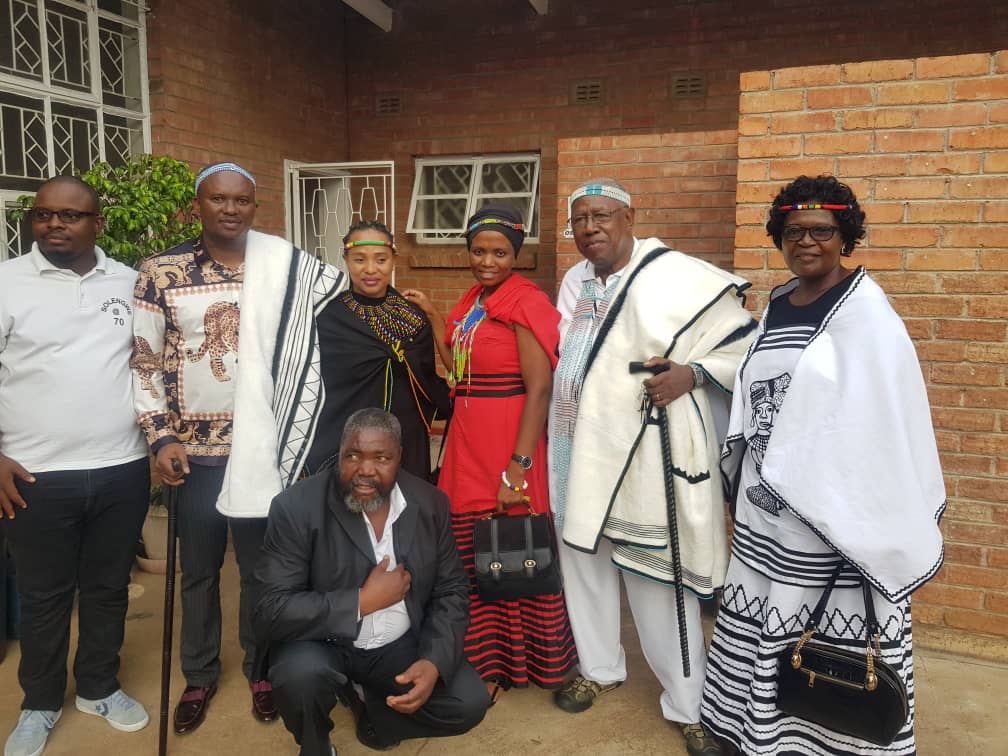The people of Bulawayo on Saturday put aside their political and cultural differences and gathered at the Brethren in Christ Church in the city to pay their last respects to the late Xhosa King, Mpendulo Zwelonke Sigcawu.
King Sigcawu, 51, died last week in the eastern Cape in South Africa, shortly after he was rushed to hospital.
He ascended to the throne in 2006 after his father, King Xolilizwe Sigcawu’s death in 2005.
Ikumkani Sigcawu was the first king in South Africa to be crowned in 2015 after the democratic recognition of traditional leadership.
The memorial service in Bulawayo was attended by members of the Xhosa community led by Prince Mcleod Isolengwe Tshawe.
The event was also attended by Minister of State for Bulawayo Metropolitan, Judith Ncube; ZAPU leadership led by Isaac Mabuka; MDC leader of the opposition in Parliament, Thabitha Khumalo; members of the Khumalo Royal family, Prince Zwide Kalanga Khumalo and Mambo King, Mike Moyo.
A delegation from South Africa was also in attendance led by the late king’s cousin, Dr Zolani Mkiva and young sister, Princess Sheila Sigcawu who arrived in the country on Saturday morning for the memorial.
Addressing mourners, Price Tshawe said the memorial was meant to celebrate the life of King Sigcawu, who was a visionary and loving leader.
“He wanted development in rural communities and when he was here in the country we spoke about building a state of the art school in Mbembesi,” he said. “King Sigcawu cared for his people and in turn was loved by people. I have in my care, 13 beasts that were given to him by people.”
Prince Tshawe who is part of the Xhosa Royalty and is an elder in the Royal council, joked that the late wanted to marry a Zimbabwean woman.
“The king asked me if had more cows, which he would add with his so that he could pay lobola,” he said. “Nevertheless, I am still keeping those cows for him.”
The prince said King Sigcawu wanted to unite all Xhosa people spread across the region.
“We once went to Zambia where we met with Kenneth Kaunda, and saw Xhosa people there,” he said. “In Botswana we opened a cultural office two years ago and about 300 Xhosa people attended.”
Dr Mkiva, the king’s cousin, said it was no joke that King Sigcawu wanted to marry a wife from Zimbabwe.
“He had four wives but wanted another one from here,” he said to laughter from the crowd.
Dr. Mkiva gave a background of the late, saying his main focus was on developing rural communities.
“In our culture, we don’t say a king has died but has transitioned to join other ancestors,” he said. “Therefore he is still with us in spirit. Zwelonke was the eldest son of his father, who had five wives.
“He went to public schools like other children and later attended a school of traditional leaders. He then served as the Chief of the Royal Palace reporting to his father and was the rightful heir. In 2006, he took over the reins of power.”
Dr Mkiva zeroed in the King Sigcawu’s relationship with Zimbabwe, as he sought to strengthen relations among his kingdom and Xhosa communities in the country.
“When Zwelonke first arrived in the country, he went to the former late president, Robert Mugabe who welcomed and allowed him to meet his people. He was even told there were Xhosa people in Chinhoyi. From 2011 to 2019, King Sigcawu did big things for his people here,” he said.
“He also gave a bravery award to Mugabe for his pan Africanism, taking on white monopolist attitudes. We respected Mugabe even though people had issues with him at home.”
Dr Mkiva, also the secretary general of the Congress of Traditional Leaders of South Africa urged African governments to invest in traditional institutions.
“If you look at South Africa, it is led by ANC, a liberation movement whose backbone is the institution of traditional leaders. Frelimo in Mozambique is also grounded by the traditional institution, so as Zanu PF here.
“You can see from the voting patterns that people who stay in rural areas recognise the leadership of liberation movements. Not recognising traditional leadership, is the start of a country’s downfall as a third force may come in to capture the traditional institution,” he said.
The late king’s cousin’ narrated that Sigcawu always pushed for the development of rural areas and did not mince his words about this while meeting South African leadership.
Prince Zwide said he and the late king were personal friends having met him in 2014 when he came to Bulawayo for the King Mzilikazi commemorations.
“I was tasked to fetch him from the airport and when I arrived, he was with late chief of Mthwakazi people in South Africa, Albert Gumede who had travelled with sister to King Zwelithini, Patricia. The next time King Sigcawu came to Zimabwe I was invited by Tshawe to be there. We became brothers as if we were born from one family,” he said.
“The last time I saw him was in April 2019 when he came to celebrate his birthday here. This was the day he advised me on three things – knowing one’s identity, unity and development as a country could not go forward without these. His death is painful to me.”
Others who spoke were Bishop Ndumiso Khumalo representing the Khumalo family and said together with the Xhosa were united in blood, having one ancestor – Mnguni.
“This is why we have Nguni languages, whose dialects are all the same, he said.
Minister of Bulawayo State also spoke on the importance of tradition, saying a county without culture is lost while King of the Mambo also gave a solidarity speech.
Sigcawu was accorded an official category 1 funeral and would be buried next Friday where President Cyril Ramaphosa will deliver his eulogy.

